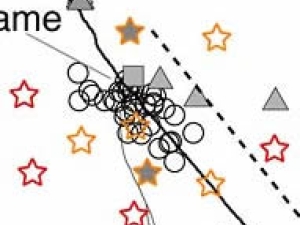

Research Bio
Douglas Dreger is a professor of of geophysics. His research is concerned with seismic wave propagation, seismic source problems, and developing automated algorithms for the rapid analysis of earthquakes. His primary research is in the area of seismic source analysis where he has investigated events from magnitude -2 to 9.2. For moderate to large earthquakes he develops kinematic models of rupture to discern the faulting geometry, the distribution of slip and the speed of rupture. This work is used in understanding the magnitude scaling of earthquakes which is an important component for the characterization of ground motions in hazard studies. He is also interested in the source processes of "exotic" seismic events, which includes ice quakes, landslides, seismicity occurring in geothermal and volcanic environments as well as seismic events induced by human activity (mining collapse, triggered seismicity, explosions). He works on nuclear explosion monitoring problems, and has studied nuclear explosions in China, the former Soviet Union, the United States and North Korea. He and his students have developed tools that aid in the identification of large buried explosions from their seismic finger prints.
Research Expertise and Interest
wave propagation, Inverse theory, geophysics, Earthquake strong ground motion, Seismic source modeling, Seismic forensics, nuclear explosion monitoring, Induced seismicity, Volcanic seismicity
In the News
Project will monitor tremor activity beneath San Andreas Fault
The Gordon and Betty Moore Foundation has donated $1.2 million to the Berkeley Seismological Laboratory to install a small network of earthquake sensors around the San Andreas Fault at Cholame to monitor faint tremors that have been discovered in the area.

